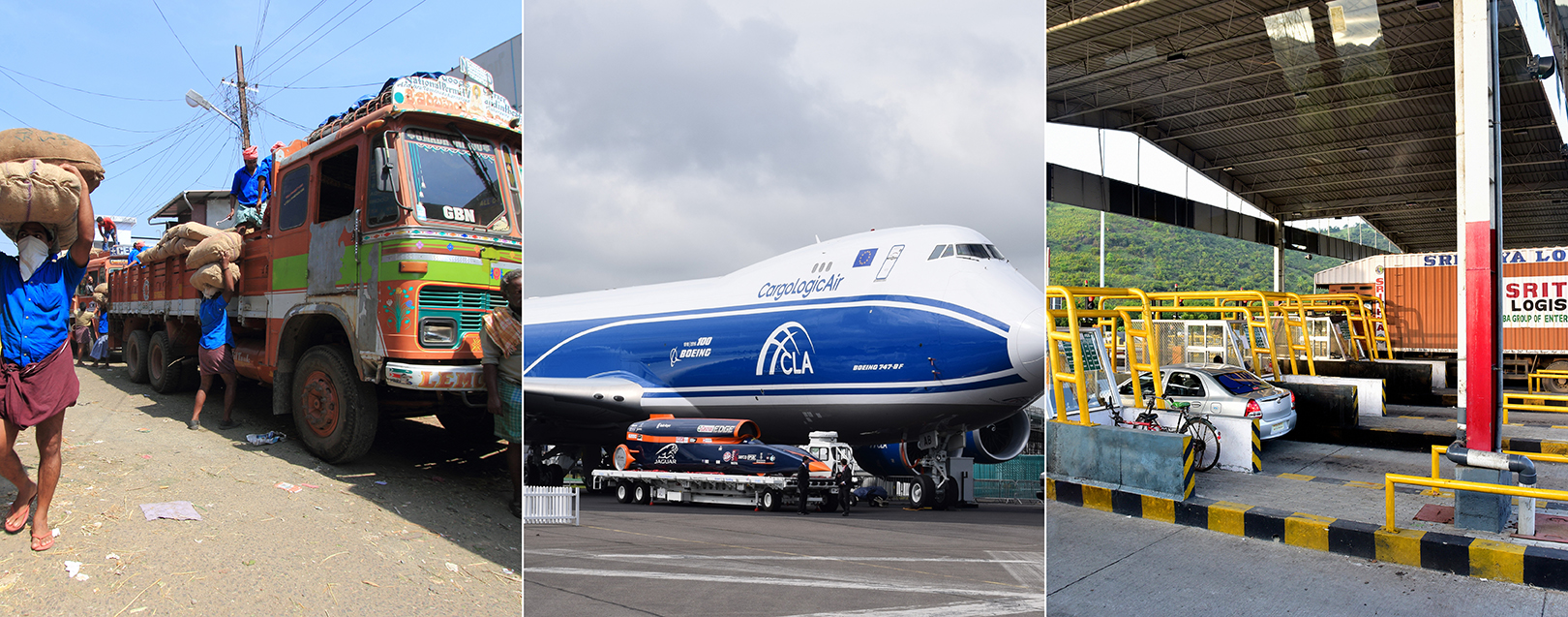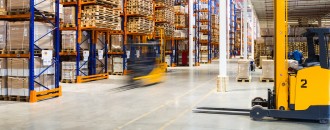
Demonetisation Affects Hyderabad Transport and Air Cargo Sector
Sreenivasa Rao Dasari
Demonetisation is not sparing any section of the society. With liquid currency, fast disappearing from the market, thousands of trucks in Telangana have been pushed off the roads throwing businesses out of gear. The air cargo segment too is feeling the heat of cash crunch which is severely affecting the foreign trade of Telangana and various businesses in the city of Hyderabad.
The shortage of currency came as a bolt from the blue for the logistics industry as 50% of the trucks have suddenly become immobile. It is estimated that 10,000 trucks are operational under Hyderabad Goods Transport Association (HGTA), which makes it a business loss of over 70% to 1,000 transport companies.
The lo![]() gistics business is out of gear, says Ravi Goel, Vice-President, HGTA. "Generally, 80% of transactions in the goods transport sector are done only through cash. Of course, now we accept payments from customers via debit/credit cards and online transactions, but how can we pay our drivers and cleaners? They need cash as they are on duty for several days. Almost half of the business has been affected negatively due to demonetisation" Goel expressed to The Dollar Business correspondent.
gistics business is out of gear, says Ravi Goel, Vice-President, HGTA. "Generally, 80% of transactions in the goods transport sector are done only through cash. Of course, now we accept payments from customers via debit/credit cards and online transactions, but how can we pay our drivers and cleaners? They need cash as they are on duty for several days. Almost half of the business has been affected negatively due to demonetisation" Goel expressed to The Dollar Business correspondent.
While inviting cashless e-transactions, Air Cargo Agents Association of India (ACAAI) expresses its concern over the current crisis being faced by air cargo and customs agents.
Tulasi D Prasad, Chairman, ACCAI- Hyderabad Sub-Region, said: “Demonetisation is hitting small air cargo agents very hard. The reason being cheques issued by them are not accepted by many agencies including airlines, customs custodians, shipping lines etc. They cannot afford to have debit cards and credit cards which are not accepted by the people they deal with. To protect the small agents, ACCAI made representations to the airlines and other related agencies. We are waiting for a proactive response. The currency crunch is hitting export-import trade severely due to cash-rotation issues.”
![]() Tulasi D Prasad, Chairman, ACCAI- Hyderabad Sub-Region, said: “Demonetisation is hitting small air cargo agents very hard. The reason being cheques issued by them are not accepted by many agencies including airlines, customs custodians, shipping lines etc. They cannot afford to have debit cards and credit cards which are not accepted by the people they deal with. To protect the small agents, ACCAI made representations to the airlines and other related agencies. We are waiting for a proactive response. The currency crunch is hitting export-import trade severely due to cash-rotation issues.”
Tulasi D Prasad, Chairman, ACCAI- Hyderabad Sub-Region, said: “Demonetisation is hitting small air cargo agents very hard. The reason being cheques issued by them are not accepted by many agencies including airlines, customs custodians, shipping lines etc. They cannot afford to have debit cards and credit cards which are not accepted by the people they deal with. To protect the small agents, ACCAI made representations to the airlines and other related agencies. We are waiting for a proactive response. The currency crunch is hitting export-import trade severely due to cash-rotation issues.”
The goods transport businesses, a major segment in the transport industry, have taken a hard blow due to the currency crunch. Transport operators feel that demonetisation has dealt a body blow to the logistics sector.
Concurring to the online drive taken up by Prime Minister Modi, the HGTA questions that online payments from customers are ok, but how can we address the problems that we face on road? Everything can’t be paid online or via debit/credit cards, he said. “The transportation sector contributes 4.8% to the GDP and demonetisation is adversely impacting the Rs. 15 crore transport business every day.”
The total expenditure per truck per day is estimated at Rs. 16,000 while diesel payment is done using a debit card. But we still need a balance of hard cash which is around Rs. 10,000-12,000 in a day. This comes to a total of Rs.5.7 lakh for a fleet of five trucks operation on a national permit. Demonetisation has jeopardised the goods transport sector,” he added ruefully.
Carrying cash is essential for drivers as there could be unexpected problems along the way such as truck breakdown, repairs, food and personal requirements, the association clarified.
It is estimated that more than four lakh trucks have been stranded in the country due to demonetisation. Subsequently, the business volumes reduced drastically. Initial estimates put the business loss to the extent of 40% as the capacity utilisation of the fleet fell 60%.
Generally, fuel costs account for about 60% of the total trip costs, while another 25-40% expenses are incurred on tolls, octroi duty (trucks entering particular areas) and for speedy clearance at check posts. There are 177 inter-State check posts and 268 toll barriers on National Highways across the country.
Even, if our customers pay online and we pay taxes, toll, fuel payments using debit cards, how can we deal with the rest of miscellaneous expenses without cash, questions Goel, all the while affirming that hard cash is required for the logistics industry as these are cases of direct impact.






 to success.
to success.